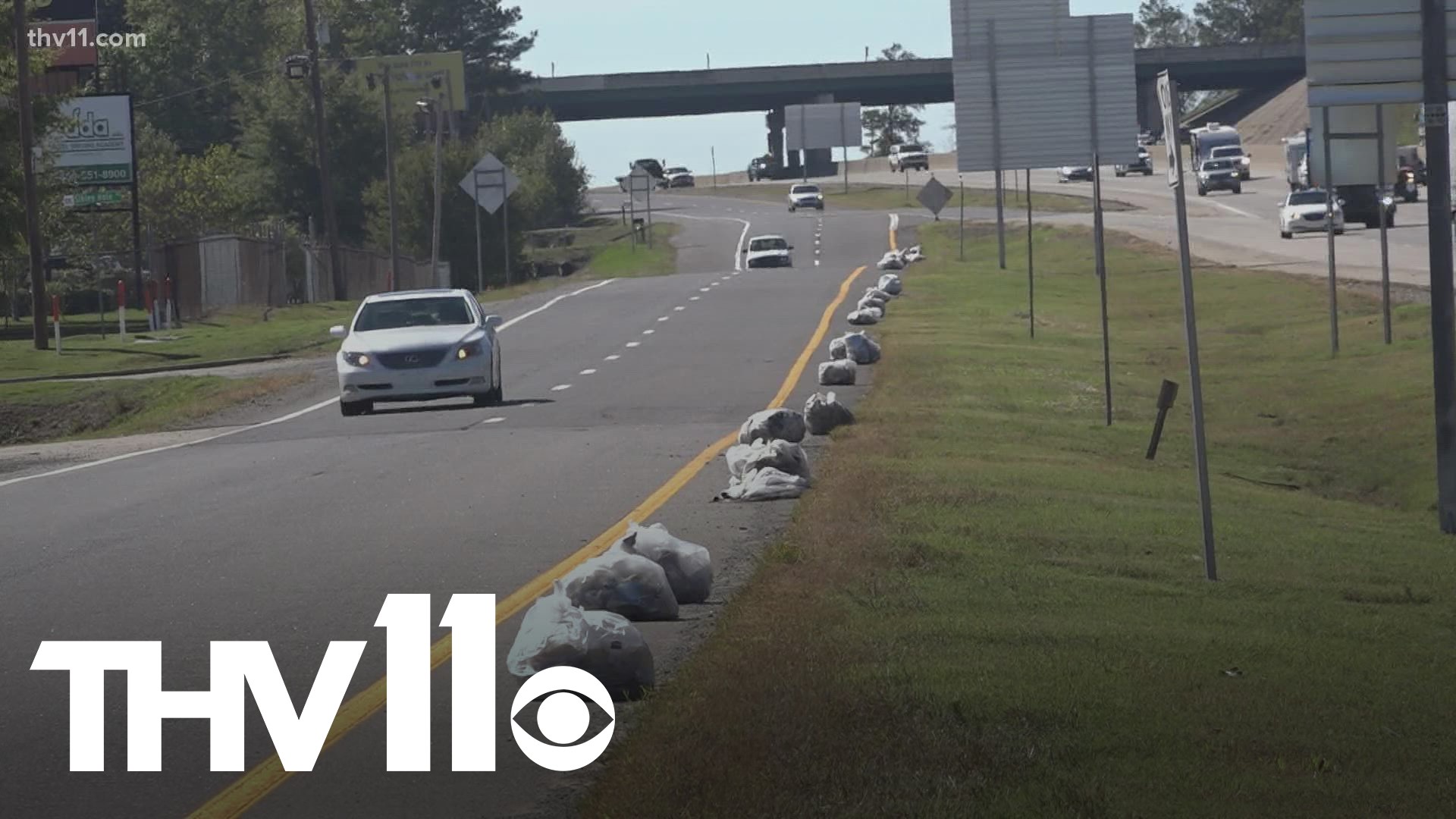LITTLE ROCK, Ark. — Fifty years ago, the U.S. Forest Service introduced the country to a wise character with a gentle reminder.
Woodsy Owl urged us all to "give a hoot. don't pollute" with a jingle at the end of the public service announcements that said, "help keep America... looking good... hoot hoot."
Any trip anywhere in Arkansas right now will tell you, we need a reminder.
"Litter is an issue and the litter getting throw out is the biggest issue," said Holly Butler, a deputy in the public information office of the Arkansas Department of Transportation.
For years, litter was a state and national park problem, but today, it's a highway department headache. ARDOT has to mow the grass along the roads and litter gets in the way of that.
"But mowers only mow three times a year," Butler said. "Litter needs to be picked up daily."
With that in mind, ARDOT is appealing to our good sense— using dollars and cents— to get us to change our behavior.
"On average, ARDOT spends approximately $5 million a year just on litter," declares Butler.
That's a big chunk of change just for garbage, but the agency has data to back up the claim.
The folks at Keep America Beautiful did a study and found that more than 50 billion pieces of trash end up on the roadside. Break that down and it comes out to around 32 million pieces of trash in Arkansas, just on state highways and interstates.
And since those aren't the safest places to stroll and pick up trash, it falls to ARDOT workers and contractors to take on the task.
"And that means they take time away from filling potholes or repairing guardrails or cleaning out culverts," Butler said. "You know the cost is high and that's costs that could go elsewhere that to helping maintain the roads."
ARDOT says repairs like those are just part of what that $5 million could have helped with. That kind of money can buy 65,000 tons of asphalt, which could fix about 325,000 potholes.
Butler notes that will always prioritize repairs and those projects are not sidelined, but it still means that in the end taxpayer money has to go specifically just to handle this litter problem.
"I don't know what the number is, but it's huge," said Mark Camp, the executive director of Keep Arkansas Beautiful, the non-profit that leads the volunteering charge to pick up litter in the state.
Even he can't quite wrap his head around how much money we waste, but one attempt would be to wonder what all those volunteers who help on the annual clean-up events would be paid if they didn't do it for free.
"The value of those man-hours... is over 65,000 hours, and the value to Arkansas is about $1.6 million," he said, referring to more data from Keep America Beautiful.
Butler didn't want to pick on any one group of drivers for being the biggest litterbugs, but Camp points out an obvious explanation for the problem around here.
"A big part of it [is] pick up trucks," he said. "We certainly have a lot of pickup trucks here in Arkansas. Even well-meaning people, they'll put their trash in the back of the pickup truck and it blows out."
That's something an awareness campaign can fix, and that's why Butler and others manned a booth at the recent Arkansas State Fair. They're starting to spread a message about the cost and volume of this problem.
As for those who can't drive, the legacy of Woodsy Owl is alive in the Natural State through a new character named Otto the Otter.
The 2-year-old mascot has a book deal and an activity packet to hand out when he visits schools and other events. The goal is to reacquaint the next generation with the concept of keeping our roads clean.
"If we can train the children, we'll have a little bit different mindset in a few years," Camp said.
As for right now, the new ARDOT campaign will gladly take the assist from the kids throwing some influence on their parents and grandparents.
"Litter is bad," said Butler. "It doesn't bring anything good, and we just want people to understand that when you litter, it's not just that one second, the litter is lasting."

